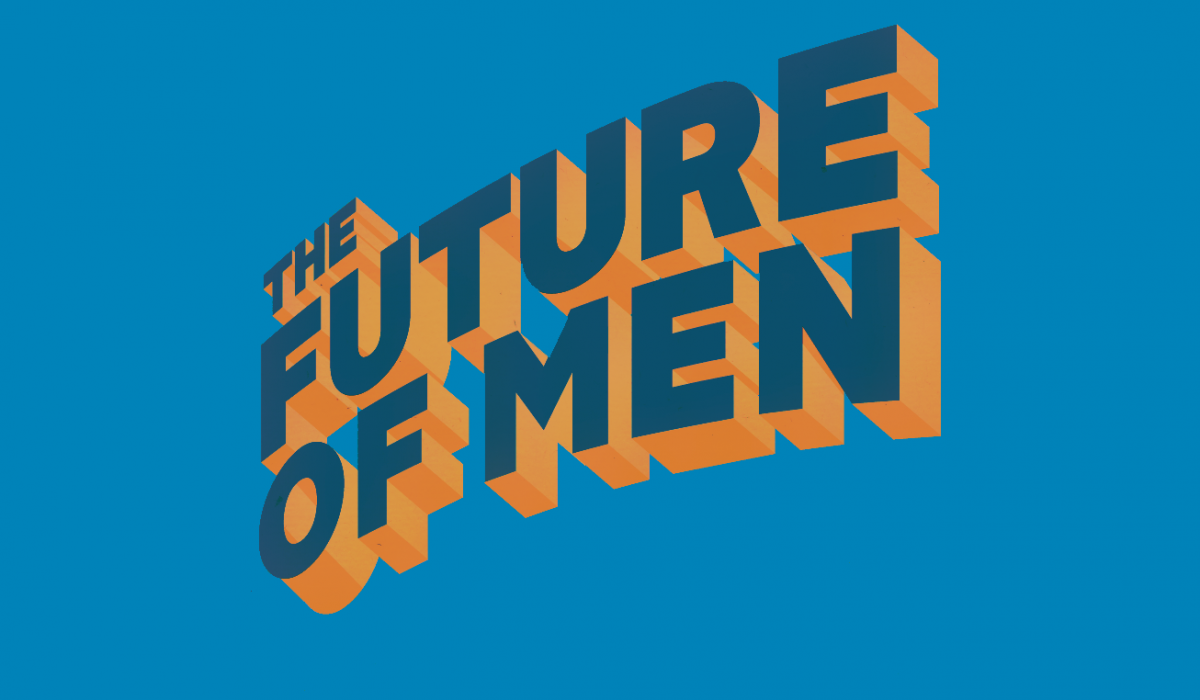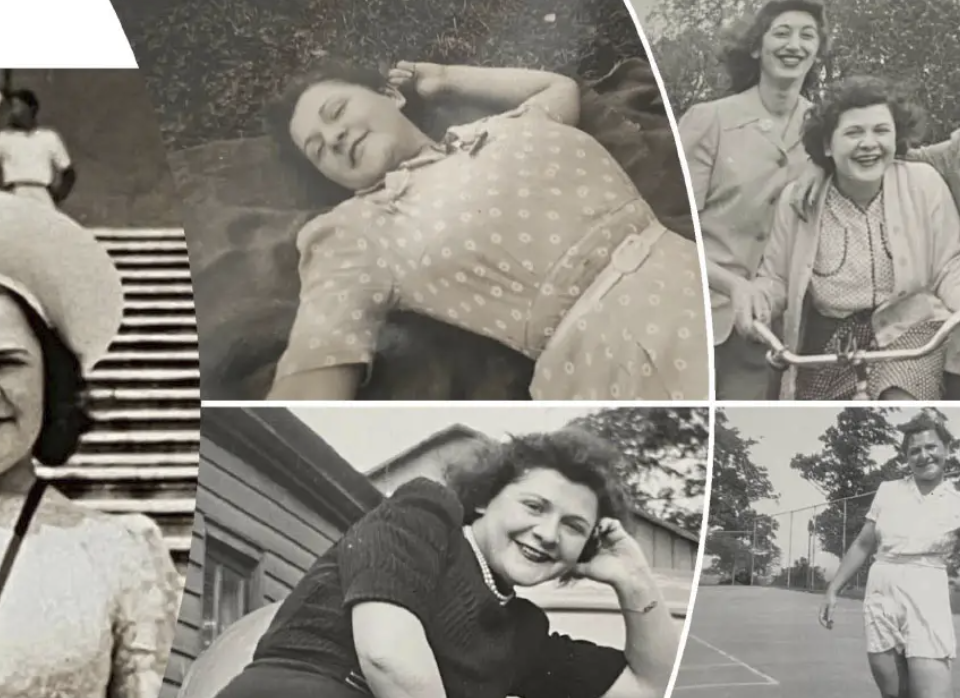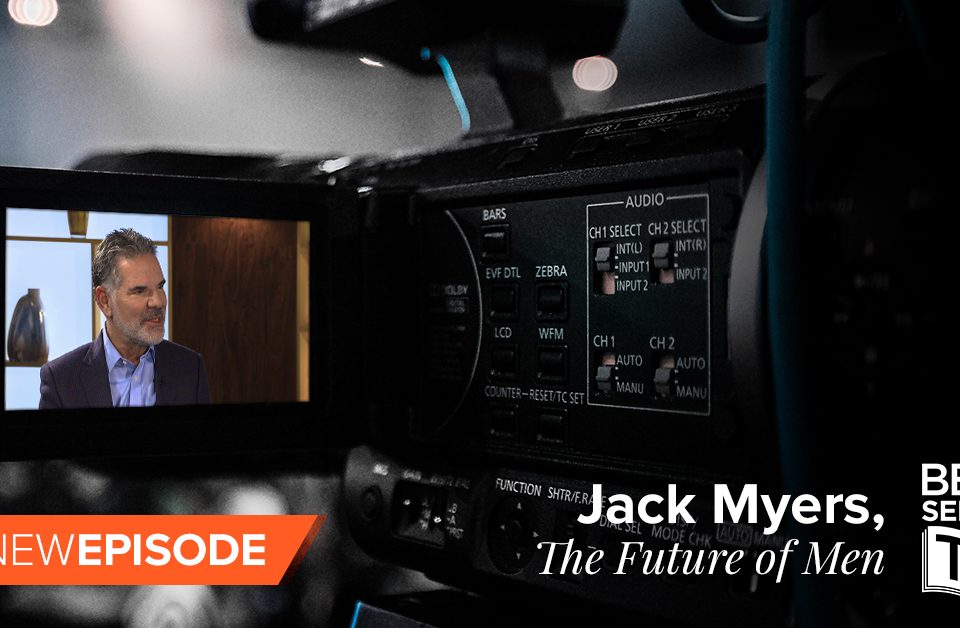Nicky’s Story, as Told by His Mom: What are We Teaching Our Sons?
Excerpted from The Future of Men: Masculinity in the Twenty-First Century, by Jack Myers
For more information link here.
We were standing in line for the antique car ride at Storybook World when it happened.
Let me set the scene for you: my son and daughter had just declared a truce in their squabble over who was going to get to “drive” and had joined forces in trying to guess whether we’d get a red, blue, or yellow car based on the order of the cars on the track and our place in line. It was one of the final days of August, following a brutal length of time, during which our family had endured a number of financial setbacks related to my husband’s job, the government sequester, and my own poor planning. On the upside, we’d recently received some promising news, my feuding offspring were in rare alignment, and the school year was about to begin, bringing with it relief from the relentlessness of parenting during ten weeks of school vacation. In other words, my spirits were higher than they’d been in months.
The kids and I had received passes to a nearby amusement park for Christmas the previous December. In former years, we hadn’t thought twice about buying the passes for ourselves; we’d taken both access and proximity to Storybook World for granted. This year, though, we’d needed help, and I was thankful to be there. I’d even saved up some money to treat the kids to pizza and ice cream inside the park (as opposed to the peanut butter and jelly sandwich picnic lunches I’d been packing throughout the rest of the season).
As we inched forward in the very long line, I heard a male voice behind us rise above the delighted shrieking, background music, and popcorn munching. “No son of mine will ever have long hair,” the voice declared. “If he does, I’ll cut it right off.”
My 6-year-old son Nicky, standing mere feet away, had long hair. While my inner tiger mom wanted to turn and roar at the heartless stranger, sense trumped sensitivity. I’d observed the man a few minutes earlier tossing his infant high into the air and catching him while the baby’s mother smoked a cigarette under a “No Smoking” sign. The baby, about three months old, was clad in a onesie that read, “All My Mommy Wanted Was a Backrub.” Keeping in mind my mother’s oft-imparted “consider the source” rule, this was clearly not someone with whom I could expect to reason, let alone silence with a glare. I kept my gaze forward and feigned deafness.
Instead, I turned my attention to my son, studying him for a reaction to the man’s outburst. Nicky was staring straight ahead at the winding track punctuated with brightly colored vehicles and animatronic livestock. He didn’t say anything. I didn’t even know if he’d heard. The line moved faster. We got the yellow car; Nicky drove. It was a breathtaking end-of-summer day.
While eating his oatmeal the next morning, Nicky was uncharacteristically quiet before setting down his spoon and announcing, “I want to get my hair cut.” This is the same child who steeled his jaw, clenched his fists, and refused to cry following a bike crash that resulted in eight stitches. This is also the same child who, within days of that accident, was inconsolable for hours after a snail he’d found clinging to the underside of a leaf was unceremoniously crushed by an older cousin. A dynamic blend of virile and vulnerable, my son is committed to asserting his independence—and yet is deceptively fragile. The careless seed planted by the jerk behind us—because that’s exactly what he was—had taken root and grown into an invasive weed. My heart broke at Nicky’s words.
The combined product of being the younger sibling of an older sister and my own efforts not to assign gender stereotypes to either child, Nicky had until that moment gone through life happily wearing pink hand-me-downs and cooking sunny side up eggs in the play kitchen. That’s not to say we hadn’t seen plenty of indications of nature’s handiwork: his relentless love of all things with engines since the age of 18 months, and a recently acquired ability to turn everything—from a cucumber to a toy guitar—into a pretend weapon. Long hair, fuchsia snow boots, and all, my son has been frequently declared “all boy” by loved ones and strangers alike.
While I’ve also made a large effort not to validate my children based on appearance, I’d slipped up in one regard: my son’s magnificent mane. Since he was a baby, Nicky’s wavy blonde locks were admired nearly every day by a certain kind of mom. In retrospect, I suppose his hair may also have been scorned daily by a different kind of mom, but those types of comments weren’t typically made within my earshot. Nick’s surfer-chic, tousled hair naturally achieved what had been carefully cultivated by countless 80s-era prep school boys and modern-day Disney Channel heartthrobs. Women similarly would pay hundreds of dollars at the beauty salon to replicate his natural flaxen color.
But there we were: my previously unflappable, long-haired son wanted his hair cut, and I realized how deeply opposed I was to satisfying his request. Had my daughter asked for Anne Hathaway’s pixie cut, I likely would have acquiesced without a second thought. Did my resistance to allowing Nicky to have short hair make me any better than the man standing behind us in line at Storybook World that day?
My hairy problem was, at least in the short term, resolved by a well-timed viewing of the movie Hercules, in which the uber-masculine hero has long, flowing locks. (I suppose I could have taken it a step further and shared the story of Samson and Delilah, but that was further than I was ready to go!) I’ve been spared the haircut for now, but the underlying issue remains: had my son persisted in demanding that haircut—and he may still; Nicky is nothing if not persistent—what lesson would I be teaching him in refusing to honor his request? While Nicky’s long hair indeed serves as a personal reminder of days gone by, I have admitted that it is also a matter of principle for me, as it has been for generations before me. Does long or short hair, then, become passed on as a matter of principle to my son and, for that matter, the airborne baby in the offensive t-shirt? Something else to think about: I don’t want my daughter to be defined by her hairstyle, so why would I wish that on my son?
Since that day at Storybook World, I’ve become increasingly aware of the fact that while we frequently discuss ways to improve our daughters’ paths to adulthood by stressing the importance of promoting positive body image; encouraging them to opt in to studies in math, sciences, and technology; and teaching them to advocate for themselves and for each other, we sometimes trust too much that the path for our sons will be simpler. In assuming that they can and will fend for themselves, it’s easy to lose sight of the fact that they shouldn’t have to.
Girls are encouraged daily to reach beyond traditional societal constraints, and applauded for doing so. I can’t help but wonder: we are working so hard to teach our daughters that they can be anything they want to be, but what are we as a society working hard to tell our sons?





